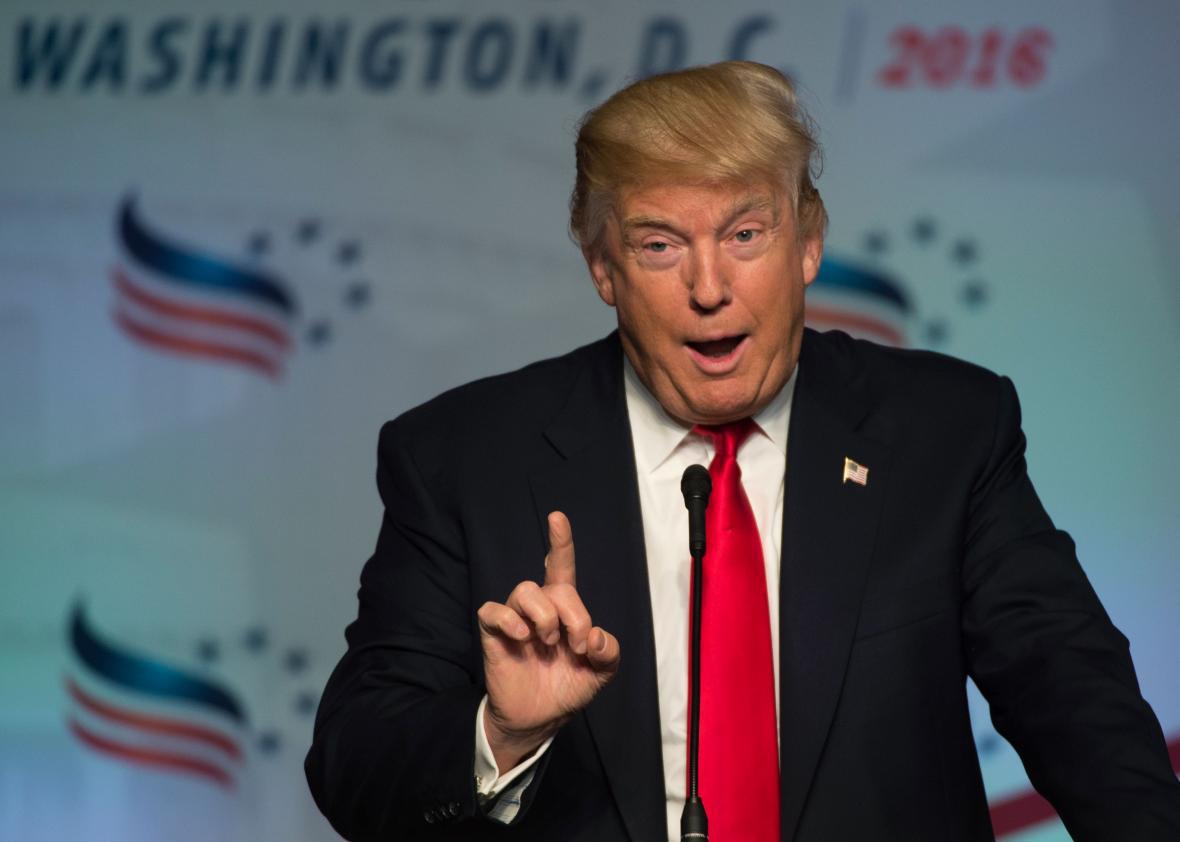I’m old and naïve enough to look to sports as a respite from other news. And in this election year, there’s a lot I want to avoid thinking about. Which is why this article about Sunil Gulati, head of U.S. Soccer, is so distressing. I figured if there was any topic that would be Trump-free, it would be soccer, a sport in which the idea of making America great again is meaningless. But, as if to prove that my cluelessness is greater than the Republican nominee’s ego, I hadn’t considered that any sport in which foreigners, and especially Mexicans, regularly make fools of Americans would draw the inevitable question: What will a Donald Trump presidency mean for America’s chances of hosting the World Cup?
Of all the disasters that a Trump presidency could bring, missing out on hosting a tournament is pretty low on the list. Still, Gulati’s claim that a Trump victory would complicate America’s chances of holding another World Cup is worth considering. As he put it, “the world’s perception of the U.S. is affected by who is in the White House, yes, so it has some bearing.”
I’m not convinced. Leaving aside the not-particularly-subtle jingoism inherent in such a statement, as well as the fact that in two of his marriages Mr. Trump has shown a considerable preference for European immigrants hailing from countries that have been known to make the World Cup, I’m skeptical that the diplomatic skills of a nation’s leader matter as much in securing a World Cup as her ability to grease the right palms. And if the newly reformed FIFA operates similarly to the old sclerotic sporteaucrats in Geneva, a wheeler-dealer like Trump might be just the man we need.
The idea that Hillary Clinton would be better for America’s chances of hosting the World Cup in, say 2026—two years after she would have left office after winning a second term—seems logical if you believe nations are motivated by spite, which they might be.* But expecting the voting membership of FIFA to take a moral stand when it most recently awarded the next two World Cups to Putin’s Russia and migrant worker/slave supporting Qatar is like expecting Paul Pogba to sign for the Columbus Crew.
Gulati acknowledges these questionable FIFA decisions, but he seems more concerned with America’s public image. Of course there is an historical precedent here: 1994. And who was in the White House when America was awarded that World Cup? Ronald Reagan, whose idea of building better relations with Latin America was supporting armed guerrillas with money obtained by illegally selling arms to Iran. As with his positions on arms reduction, however, Reagan’s policies could be contradictory, and when it came to soccer, Reagan did not want to turn the U.S. into an evil empire.
According to a 1987 editorial in the New York Times written by one of Sunil Gulati’s predecessors as head of U.S. Soccer, Werner Fricker, Reagan supported bringing the World Cup to the U.S., signing a law that created an interagency task force to speed the process. The law also designated the secretary of commerce as the official negotiator with FIFA, so perhaps Gulati’s fears about Trump could be ameliorated by judicious Cabinet appointments and thoughtful congressional drafting. Fricker seemed unconcerned about Reagan’s international profile, either with respect to Latin America or his home region of Eastern Europe, which at the time was behind the Iron Curtain and the recipient of verbal assaults more dangerous than anything Trump has said so far. Fricker spouted FIFA boilerplate about how “the World Cup unites the entire world during its one-month 52 game run.” His defense of diversity has a bit of the Trump Tower taco bowl ring to it, too:
Just witnessing how the irrepressible Brazilians samba in the stands to the play of their team or hearing the songs and chants of European soccer would be a valuable lesson in cultural understanding right in our own backyard.
And yet, as we all know, the U.S. won the bid and hosted its first World Cup, affording me the opportunity to suffer through two dreadfully boring games at Giants Stadium, and as Fricker put it, enabling, “the entire world … to see and understand the American people and our way of life.” For those who fear what might happen to soccer in Trump’s America, consider this: In a world more divided than today’s, a polarizing president was able to build a bridge to the world’s game, not a wall.
Read more Slate coverage of Euro 2016 and Copa America.
*Correction, June 10, 2016: This post originally misspelled Hillary Clinton’s first name.
